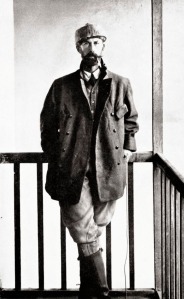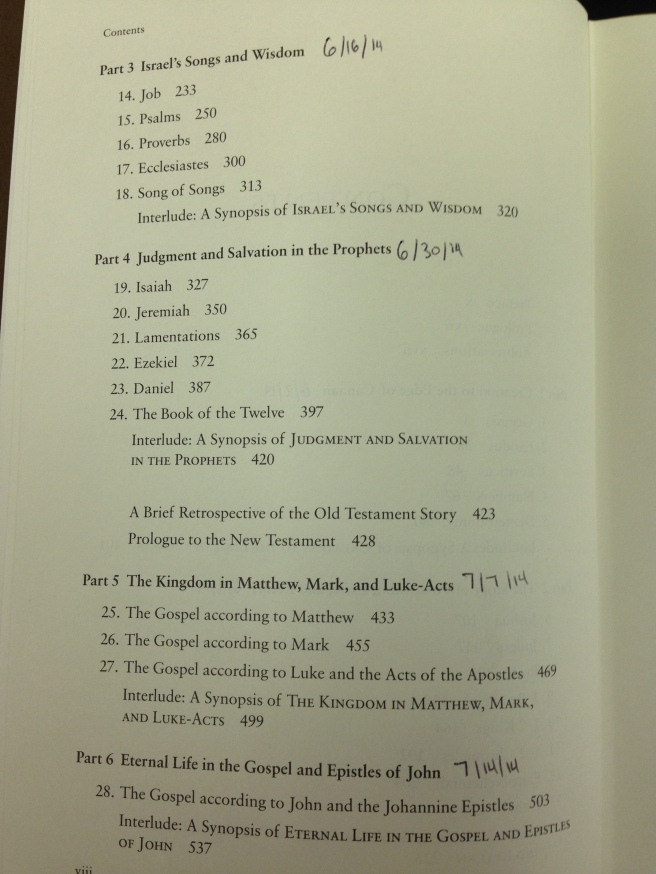Prayer and the Trinity
For You CAN Pray [Part 1], click here.
Ephesians 2:18 – For through him we both have access in one Spirit to the Father.

Disconnect.
To sever, interrupt, or detach the relationship between two things.
Disconnect might happen when you are on the phone and you walk in a room with no service. It might happen as you check email at home when the power goes out and you’re WIFI goes down.
Disconnect can be pretty dangerous too.
It can happen when your pickup truck is pulling a trailer full of boxes as you move your student into her new dorm room. Disconnect can prevent communication between pilots and air-traffic control towers.
Disconnect can show up in your spiritual life as well.
If you profess to be a Christian but claim an inability to pray or a fear to pray aloud, you may have become the victim of Disconnect.
Whether intentional or unintentional, this fear or inability reveals that you have disconnected your prayer life with the foundational Christian belief in the Trinity.
The doctrine of the Trinity teaches that there is one God who exists in three persons, equal in essence and being but distinct in function.
The Father, the Son, and the Holy Spirit.
There is mystery here, but the doctrine of the Trinity is not a mere philosophical exercise. It is not merely a teaching to study and ponder.
The doctrine of the Trinity has real, gritty, concrete, flesh and bone arms and legs. It impacts your everyday life.
It impacts how we live in relationships with one another. It impacts how we read the Bible.
And the Trinity directly connects to how you pray.
Sam Allberry writes, “Christian prayer is Trinitarian.”

The beauty of this truth is that when you start to understand how the Trinity connects to prayer, you will be more confident when you pray and more excited to pray.
Scripture shows us to pray…
TO THE FATHER
This shouldn’t come as too much of a surprise. When we turn to Jesus’ pattern for prayer, we start with the address, “Our Father”.
Paul tells us in Ephesians 2:18 that we have access “to the Father.”
The norm in Scripture is prayer to God the Father.
A common question emerges: Does that mean we should not pray to Jesus or the Holy Spirit?
Praying to Jesus – There are a few examples in the Bible of praying to Jesus. Before his death, Stephen prays, “Lord Jesus, receive my spirit,” (Ac 7:59). The very end of the Bible gives us a prayer to Jesus, “Come Lord Jesus!” (Rev 22:20).
Clearly it cannot be wrong to pray to Jesus. BUT… Jesus himself told us, “Pray like this… Our Father“. We actually honor Jesus more when we follow his example and pattern and pray to God the Father.
Praying to the Spirit – Unlike the Son, there are no examples of praying to the Holy Spirit in the Bible. This does make some sense. The Holy Spirit characteristically hangs in the background; his main role is to put the spotlight on Jesus.
It must be said that the Holy Spirit is God so it would not be a sin to pray to Him, but we need to recognize that this should not be the general form of our prayers if we are going to pray like the prayers we find in Scripture.
Praying to God the Father is the norm.
Family Time

One of the reasons for primarily praying to the Father is that it reminds us who we are in relationship to God. He is our Father. We are his children. This isn’t a meeting with your boss or an over-busy, easily frustrated dictator. Praying to the Father, we remind ourselves that prayer is family time.
Family time should be intimate – not intimidating.
Consciously recognizing God as your Father when you begin to pray should give you a boost of encouragement! Right away, we start off with a reminder of God’s love and grace. Look, you can do this!
Next we pray….
THROUGH THE SON
Here’s an important question to consider: What does IN JESUS’ NAME mean?
Once, you’ve answered that, here’s a second question: If you’re not really sure what it means, why do you say it?
Even though it does mean something quite important, we should never try to fill up space in our prayer time with things that mean nothing to us. Jesus said, “When you pray, do not heap up empty phrases,” (Mt 6:7). If IN JESUS’ NAME is an empty phrase to you, don’t keep saying it mindlessly. Fill it up with meaning first, and then say it.
When you go to a wedding, an usher usually greets you at the door and asks a simple question. “Bride or Groom?”
You respond by telling the usher who it is that you know. Hypothetically, this ensures that everyone gets into the wedding is someone with a relationship with the wedding party. Hypothetically, if you do not know anyone, you do not get into the ceremony.
IN JESUS’ NAME means access.
For through him we both have access… to the Father.
We can pray to the Father only when Jesus grants us access to him. He gets us in the door. Hebrews 9:24 tells that “Christ has entered… into heaven itself, now to appear in the presence of God on our behalf.”
Another way to say this is Jesus is our mediator. A mediator is someone who stands in the gap. Left to our own, we have an unbridgeable gap between us and God. Jesus’ work on the cross makes the unbridgeable bridgeable.
Our prayers reach God because Jesus stands in the gap.

Some people think IN JESUS’ NAME is Christian magic. If you pray (it is thought) and forget to say IN JESUS’ NAME, God will say no. But if you say IN JESUS’ NAME, God will say yes. Plus you can even say it and wave your arm like a wand and beat demons, cure cancer, or make your bank account bigger… But only if you say IN JESUS’ NAME.
But IN JESUS’ NAME is simply a regular reminder to ourselves and an admission before God that we believe in the Gospel.
It is a declaration that you understand you have done nothing to make God your Father, that you have done nothing to gain access in prayer, and that you can only make these prayers because of the life, death, and resurrection of Jesus.
So IN JESUS NAME is a Christian distinctive. If you do not believe this about Jesus, IN JESUS NAME doesn’t mean anything. It is just three extra words.
IN JESUS’ NAME is a declaration of hope.
All the promises of God find their Yes in him.
That is why it is through him that we utter our Amen to God for his glory.
2 Corinthians 1:20
I hope you see how filling up IN JESUS’ NAME with this gospel meaning should only increase your confidence in prayer.
You don’t have to warm yourself up. You don’t have to have it all together. When you pray through Jesus, you recognize you never have it all together and that every word of prayer is a word given by grace.
IN JESUS NAME reminds you, you can pray.
Last, we pray…
BY THE HOLY SPIRIT
This might be the best part. All of our fears and insecurities in prayer should melt when we understand the Spirit’s work in prayer.
The Holy Spirit’s role in prayer should make the disconnect connect.
In Romans 8:15, Paul writes, “For you did not receive the spirit of slavery to fall back into fear, but you have received the Spirit of adoption as sons, by whom we cry “Abba Father!”
When Jesus gave us the Lord’s Prayer, he said to pray like this, “Our Father.”
Paul shows us that the Spirit moves us so that we do pray that way.
God the Spirit propels us to pray to God the Father in the very way God the Son taught us.
There’s more good news in verse 16, “The Spirit himself bears witness with our spirit that we are children of God.”
Do you ever feel too messed up to pray?
If you are a Christian, the Holy Spirit lives inside of you. His job is to remind you who you are. You tell yourself you’re too messed up to pray, but the Spirit inside whispers, “No you are not! You’re a child of God. Say it with me… Father.”
Sometimes that does not seem enough.
We give in and start to pray even though we feel too gross, too weak, too simple. But then, we have no clue what to say.
(Ignoring the fact that you can always hop on the ACTS train) Paul has even more good news for your prayer life pessimism in verse 26.
Likewise the Spirit helps us in our weakness. For we do not know what to pray for as we ought, but the Spirit himself intercede for us with groaning too deep for words…. the Spirit intercedes for the saints according to the will of God.
Don’t know what to pray? Not a problem.
God the Holy Spirit not only reminds you and encourages you as a child of God. He prays with you and for you.
So as you mumble, stumble, and fumble your way through prayer, God himself is prays. And notice what Paul says at the end. He prays “according to the will of God.”
Remember, Jesus teaches us to pray your will be done.
Now, the God the Spirit prays for us to God the Father in the way God the Son taught us.
THIS is why you cannot disconnect the Trinity from your prayer life.
God the Spirt prays for you
to God your Father
accessed through the work of God the Son.

CONNECT YOUR PRAYER
Disconnecting your prayer life from your belief in the Trinity puts you in dangerous territory.
When you say you cannot pray or that you do not know what to pray, then you are also saying that God the Spirit does not live inside you or that he refuses to do his job.
You are saying that you do not have the same access to the Father. This means Jesus’ work on the cross failed to do the job.
Connect the dots. You don’t believe these things, do you?
Christian prayer is Trinitarian.
The Trinity fuels Christian prayer.
So the next time you are called to pray in a small group or you hit a wall and do not know what to say next, remember who God is and remember who you are.
Pray to your Father.
Pray through the access you have in the Son.
Pray by the power of the praying Spirit inside of you.
You can pray!



 Daddy, do you know what Cat in the Hat said?
Daddy, do you know what Cat in the Hat said?


 He excelled at the high school level and continued to play competitively after graduation. Soon after joining the army, Damon finds himself on the familiar diamond in a scrimmage between the troops. Even among a group of athletic soldiers that included former professional athletes, Damon stood out.
He excelled at the high school level and continued to play competitively after graduation. Soon after joining the army, Damon finds himself on the familiar diamond in a scrimmage between the troops. Even among a group of athletic soldiers that included former professional athletes, Damon stood out.

 process you’ve never had to endure – putting the food on the table with an income not quite at what you’ve been accustomed – and he offers a word of advice.
process you’ve never had to endure – putting the food on the table with an income not quite at what you’ve been accustomed – and he offers a word of advice.

